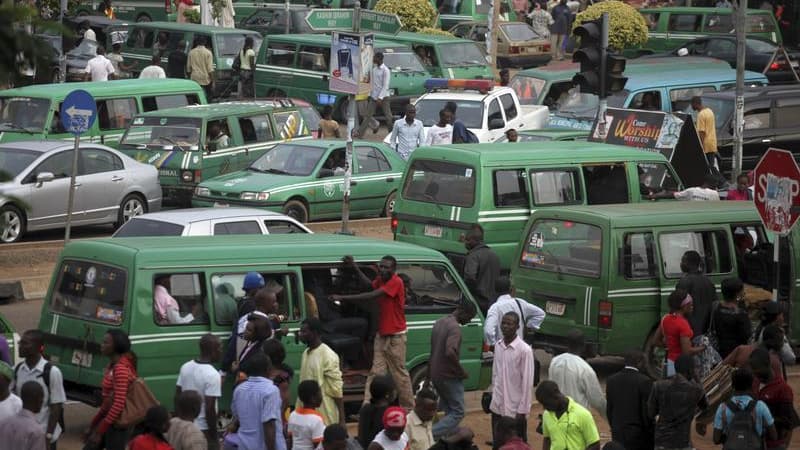The “fear” and “shame”: this is what the Nigerian Mariam Ogundairo felt when he knew that a large part of her telephone contacts had been informed that she had not reimbursed her loan hired through an unscrupulous mobile application.
In Nigeria, the economic crisis that has gone to light for two years has favored the growth of mobile loan applications using questionable means such as threats, blackmail and dissemination of private photographs to force people to reimburse their loans.
Often attracted by false promises of low interest rates, thousands of Nigerians resort to these requests to quickly obtain short -term loans, while the price outbreak weighs on its purchasing power, the annual inflation of 21.8% at the end of July.
These applications belong to local and foreign organizations.
In the absence of money and have an urgent need of 30,000 Nairras (16.70 euros), Mariam Ogudairo downloaded one of these applications and recorded its phone number.
The loan was quickly granted, but at an interest rate of 21.6%, to receive a reimbursement in two weeks, a period that Mariam Ogundiro could not respect.
At that time, the key rate was set at 27.5%, and banks applied rates that vary from 27%to 48%.
She was the victim of a flood flood, a tactic that has become the registered trademark of many loans in the fourth African economy.
“Quick Solution”
Since he came to power in May 2023, the Nigerian President, Bola Ahmed Tinubu, has established reforms, backed by economists, to revive the country’s moribond economy, but who have shown inflation and have fallen the value of the Naira.
Almost 60% of Nigerians live below the poverty line, according to the World Bank.
“A friend recommended it (a loan application) because I needed a quick solution,” said a 24 -year -old man who wanted to remain anonymous.
Two years ago, then a medical student, he had to find money to finance the end of his research for his thesis. He borrowed 70,000 Nairras (around 39 euros) in the blink of an eye, but the sum to reimburse ascended 110,000 Naira (61.40 euros), with a deadline.
Then, the loan application began sending messages to their telephone contacts, telling them that it was a “ritualist murderer.”
In March 2025, the Federal Competition Committee and Consumer Protection (FCCPC) approved 408 loan applications, compared to 269 in September 2024.
In 2024, the FCCPC had obtained the withdrawal of 47 applications for loans from Google Play Store for several crimes, including harassment, and another 88 had been put into surveillance.
According to reports, in 2023, the surveillance organization reported the presence of loan applications on Google Play Store without regulatory authorization.
“Trap”
The ease of access and the speed of treatment of many loan requests constitute a “trap”, believes that Funmi Oderinde, Citizens’ lawyer ‘Citizens’ Citizens, a civil society organization that has received 1,300 complaints about “predatory digital loans requests so far.
Some victims have trained support groups on Facebook. One of them has more than 21,000 members.
According to Funmi Oderinde, two people who have requested the legal assistance of the organization “could have died” due to the harassment of loan requests agents, while another told Citizens’ Gavel that a false fan and a real nude photo were shared in their contacts through a loan application.
But despite regulatory measures, dozens of applications continue to operate with new names, and desperate borrowers often do not verify approval lists before applying.
As a result, the usurers “prosper”, deplora Funmi Oderinde “, due to the weakness of the sanctions and the poor application of the law.”
Source: BFM TV


